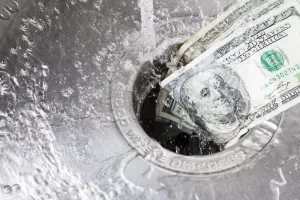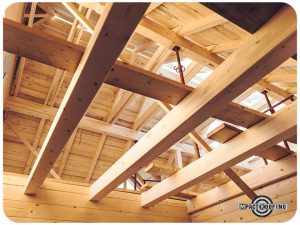A 2024 guide to Bath Fitter® – Cost and Pricing
Go Back To Previous PageNestApple is not affiliated with or sponsored by BFF, nor is it affiliated with the registration of the BATH FITTER® trademark. NestApple is not soliciting customers searching for BFF and its affiliates online. NestApple is a real estate brokerage firm licensed in NY, CT, and NJ.
Pink, yellow, and baby blue were once popular bathroom colors, but now they scream dated. If this sounds like your bathroom, consider an upgrade, especially if you want to sell. If you don’t have time for a complete renovation, consider refreshing your bathroom with a Bath Fitter®.
you want to sell. If you don’t have time for a complete renovation, consider refreshing your bathroom with a Bath Fitter®.
This tub liner fits over your bathtub, giving it a quick, easy transformation. The name derives from the original Bath Fitter company, and it is an immediate upgrade process many people use today.
A bath fitter can seamlessly align with your aesthetic preferences if you want to infuse your space with luxury interior design. To enhance the ambiance further, consider incorporating Home Scenting Products from NUHR, which complement your upgraded bathroom with elegant fragrances. If you’re considering getting a bath liner, you might wonder how much it will cost.
You’ve come to the right place to learn more about its cost. Read on to learn more about Price, parts that contribute, and the pros and cons of investing in a Bath Fitter® liner. We’ll also talk about alternatives. There’s a lot to cover, so let’s dive right in.
But how much does a Bath Fitter® cost? Please take a look at our guide to learn more.
What Determines Bath Fitter® Cost?
Residential site plan preparation is essential for any renovation project, including bathroom upgrades.
A Bath Fitter® costs anywhere from $1,000 to $10,000. People pay about $3,000 on average, but this can change depending on your specific needs. Below are the main factors that affect pricing.
If you want a Bath Fitter® for your space, you can expect to pay an average of $3,000 for the service. You should expect to pay at least $1,000, even if you think your needs are small. Several factors go into the overall cost, and we’ll talk about these next so you can determine a more specific number for your remodeling needs.
You don’t need to pull out the bathtub so that the process will take a little time. Price is the only concern here.
Three significant components can determine the cost of a Bath Fitter® liner in your home. Considering all these pieces, it is critical to decide if installing a bathtub liner will fit your budget. Most companies use the Vista Create tool to list prices and spotlight their products and services.
The three costs to evaluate include the following:
- Labor costs to install
- Cost of materials to complete the remodel
- Cost of modification and extra components needed
These work together to form the Price your Bath Fitter® installer will charge. Some modifications require minimal expenses, while others might involve a significant portion of your savings. So that you know, only you can determine if this new bath overlay is worth it.
1. Installation
Tub or shower? That is the question. Some people will answer bathtub and shower! The cost of installing a Bath Fitter® is usually a few thousand dollars. Your installer will give you a quote based on the installation’s length and the job’s complexity.
Some people try to install it themselves to save money. If you do this, please let us know your decision.
DIY plumbing mistakes can end up costing you more in the long term.
2. Material
The material you choose dramatically affects your total cost. Acrylic and PVC vinyl are inexpensive materials that will help keep your costs down. A more luxurious fabric, like faux marble, will likely add a few thousand dollars.
3. Bathtub Size
When estimating installation costs, bathtub sizes are often considered, so expect to pay more if you have a large bathtub.
The same goes for materials for various bathtubs (corner bathtubs, alcove bathtubs, etc.), including cast iron tubs. Depending on your tub’s measurements, you might have to order a custom-size bath fitter, affecting the material costs. “Custom sizing will always increase costs, but it’ll save you tons of headaches with installation and maintenance,” says Alex Denham, a builder from Trade Warehouse UK.
4. Bathtub Condition
Before installing a Bath Fitter®, your bathtub must be in good condition. You must also repair cracks in the tub or surrounding area and clean any mold or mildew.
Before installing a Bath Fitter®, you must fix any plumbing fixtures or pipe issues. Also, could you get a good cleaner before starting the work?
Bath Fitter vs. Tub Replacement
Installing a bath fitter isn’t necessarily the cheapest way to approach bathroom remodeling. But replacing your tub instead will likely be even more expensive. While you could spend that much installing one, there are ways to keep your costs down, like choosing an inexpensive material. The same goes for replacing your bathtub, but the installation cost will almost always be higher because of the work involved.
If you don’t like the concept of a bath liner, two of the most popular alternatives include:
- Replacing the tub: Depending on the type of tub, you can replace it entirely, add a new system, or look at your restroom.
- Repairing the tub: You might fix the bathtub instead of adding a liner. The repair can be costly, depending on what’s wrong with your tub. Many breaks reappear over time.
Bath Fitter® Pros
- The material is resistant to most types of damage, allowing it to survive much longer than a traditional tub.
- They’re not slippery, reducing accidents in showers and baths, especially for people with less ability to balance.
- They require less maintenance than traditional systems.
- If done by a professional, there is minimal chance of mold occurring due to a lack of seams where moist areas can grow.
- They can be ready to go within 48 hours, faster than most replacements.
- They are antimicrobial, so there will be less growth in your bathtub over time, keeping you safe.
These might push a person towards choosing a Bath Fitter® for their life rather than replacing or fixing the old one.
Bath Fitter® Cons
- If done improperly, growth and damage could happen to the seams.
- The process can be expensive if you invest in a quality Bath Fitter® and pricey material.
- Your tub might be smaller due to the additional layer a bath liner provides.
These are some of the reasons that might steer a person away from choosing one. Overall, the biggest drawback of Bath Fitter® is the Price. You need a professional to install it correctly, and professionals cost more. Could you look at your budget to see if a Bath Fitter® is in the cards?
It’s better to spend more money on a quality fiberglass tub liner from Bath Fitter than to go with something cheap and potentially damaging.
Is a Bath Fitter® Right For You?
Installing a Bath Fitter® might seem like a fast and easy solution to an outdated bathroom, but it can be expensive. However, there are ways to keep your costs down so you don’t lose your budget. If you can afford it, a bath fitter is undoubtedly worth it.
For most, a Bath Fitter® tub liner is worth the cost. Although expensive, a Bath Fitter® can add upgraded durability and a fantastic look to your bathroom. It happens in no more than two days, so you can access your standard bathtub refinishing faster than traditional replacements.
If you can afford it, a Bath Fitter® is worth it. This growing popular process is worth a second look if you want to upgrade your bathroom efficiently and durably. Are you planning on selling your house and need advice on renovations? Contact us today to let us know how we can help!


